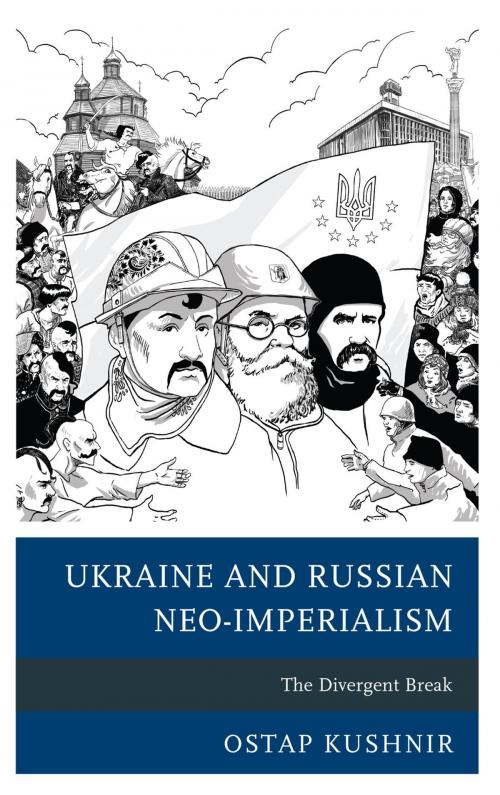Ukraine and Russian Neo-Imperialism
The Divergent Break
Nonfiction, Social & Cultural Studies, Political Science, International, International Relations| Author: | Ostap Kushnir | ISBN: | 9781498558648 |
| Publisher: | Lexington Books | Publication: | February 15, 2018 |
| Imprint: | Lexington Books | Language: | English |
| Author: | Ostap Kushnir |
| ISBN: | 9781498558648 |
| Publisher: | Lexington Books |
| Publication: | February 15, 2018 |
| Imprint: | Lexington Books |
| Language: | English |
This book first proves that the rationale behind Russia’s aggressive actions in its neighborhood resides in its goal of achieving certain geostrategic objectives which are largely predefined by the state’s imperial traditions, memories, and fears that the Kremlin may irretrievably lose control over lands which were once Russian. In other words, Russia constantly remains an expansion-oriented and centralized state regardless of epochs and political regimes ruling over it. That is its geopolitical modus operandi successfully tested throughout history. This book also scrutinizes Ukraine as a young post-colonial and post-communist state which, unlike Russia, is more prone to democratize and decentralize. To understand the logics of the ongoing Ukrainian transformation, its domestic and international developments are assessed in their connection to the Soviet political tradition and the medieval legacy of the Cossack statehood (15–18 centuries). This book outlines differences between the political cultures of Ukrainian and Russian nations. This envisages scrutiny of historical experiences and their impacts on the Ukrainian and Russian state-building, institutional structures, national identity, religious issues, and other features of sovereignty. Based on these discoveries, a structure of symbolic thinking which predefines indigenous understandings of justice and order has been constructed for Ukrainians and Russians.
This book first proves that the rationale behind Russia’s aggressive actions in its neighborhood resides in its goal of achieving certain geostrategic objectives which are largely predefined by the state’s imperial traditions, memories, and fears that the Kremlin may irretrievably lose control over lands which were once Russian. In other words, Russia constantly remains an expansion-oriented and centralized state regardless of epochs and political regimes ruling over it. That is its geopolitical modus operandi successfully tested throughout history. This book also scrutinizes Ukraine as a young post-colonial and post-communist state which, unlike Russia, is more prone to democratize and decentralize. To understand the logics of the ongoing Ukrainian transformation, its domestic and international developments are assessed in their connection to the Soviet political tradition and the medieval legacy of the Cossack statehood (15–18 centuries). This book outlines differences between the political cultures of Ukrainian and Russian nations. This envisages scrutiny of historical experiences and their impacts on the Ukrainian and Russian state-building, institutional structures, national identity, religious issues, and other features of sovereignty. Based on these discoveries, a structure of symbolic thinking which predefines indigenous understandings of justice and order has been constructed for Ukrainians and Russians.















